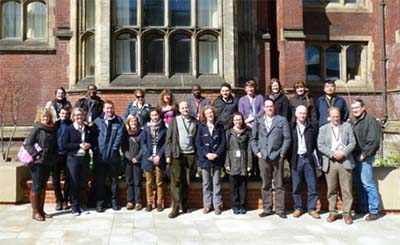
Laurence Smith, Senior Sustainability Researcher and Mark Measures, Director of the Institute of Organic Training and Advice, attended a two-day workshop at Newcastle University which provided an update on the FP7 NUE Crops and Low Input Breeds projects. The first day provided an overview of the topic of on-farm nutrient budgeting and an opportunity to try out some of the tools currently available in a practical session (i.e. the ORC/IOTA nutrient budgeting tool and PLANET, developed by ADAS). Dorte Bodin Dresbøll from Copenhagen University also presented some of the work on the use of simulation models to manage nutrients at the field scale, highlighting that whilst soil N models cannot be exact, they can still provide a useful guide for farmers. Carly Whittaker (Rothamsted Research) then gave an excellent overview of the tools currently available for farm scale carbon budgeting, pointing out the disparity in assessment methods used within online tools, and the uncertainties that still exist, particularly with regard to emissions from fertilisers and soils.
The second day focused on the Low Input Breeds project. The results from the assessment of quality characteristics of milk beef and dairy products were presented, with organic beef and dairy systems shown to result in higher beneficial fatty acid contents, partly as a result of increased use of legumes in the forage for ruminants. Mette Vaarst from Aarhus University also presented some of the work that has taken place on the control of mastitis in organic dairy systems, highlighting the potential for using farmer discussion groups to identify and share possible solutions. The afternoon of the second day ended with a tour of Nafferton Farm and the long-term comparative field trials that have been taking place there. The tour provided an excellent overview of the facilities and the opportunities for future work, building on past and current activities.
Overall the two-day meeting/workshop provided a useful overview of the work that has taken place within both projects. The outputs from this work will help to inform advice provision for organic and non-organic producers in future, in addition to helping improve our understanding of the benefits of organic food and livestock farming systems.
